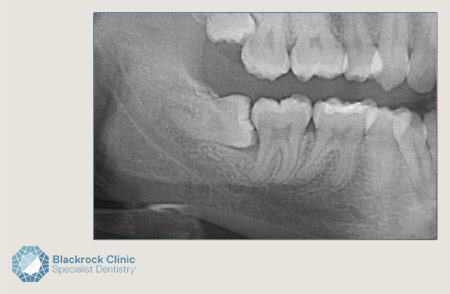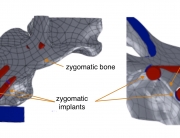 What are wisdom teeth?
What are wisdom teeth?
Wisdom teeth are the last of your teeth to develop and erupt into your mouth. In some people they are missing or remain unerupted, in others they will grow normally and never cause problems. Often there is not enough room for them and they grow in the wrong position.
Why do I need to have my wisdom teeth removed?
You should only have your wisdom teeth removed if you are having problems with them, or your dentist has diagnosed a problem related to them. Most often this will be recurrent pain, infection or decay. If you do not know the reason for the removal of your wisdom teeth, please let us know before your procedure.
What are the benefits of removing my wisdom teeth?
The benefits of removing wisdom teeth are that they will not cause more problems (such as pain and swelling) in the future. In some cases removing wisdom teeth reduces the risk of developing decay in other teeth in the future.
What are the risks of removing my wisdom teeth?
Every surgical procedure carries risks. After wisdom teeth are removed, some pain, bleeding, bruising and swelling are to be expected. Some people develop sore jaws or infections, which need to be treated. If the tooth beside your wisdom tooth has decay or a large filling, it is at risk of breaking while the wisdom tooth is removed. Upper wisdom teeth can be close to the maxillary sinus, which is connected to your nose. Removal of the upper wisdom teeth can cause a hole from the mouth into the sinus, which may need to be closed at a later date, however this is a rare occurrence.
There are some nerves close to the lower wisdom teeth. These can be damaged, causing a temporary or permanent altered sensation or numbness to the lip, chin or tongue. The chance of this happening is low, at roughly 1% (1 in 100 wisdom teeth). A CT scan can be arranged to better judge this risk if you or your dentist are concerned.
What are the alternatives to removing my wisdom teeth?
In some cases removing just the top part of the wisdom tooth can relieve problems and has a lower chance of nerve damage to the lip. This has its own risks and benefits, and must be discussed prior to your procedure.
What should I expect during the procedure?
Having your wisdom teeth removed is a minor surgical procedure. It is carried out under local anaesthetic, which makes your mouth very numb. You will not feel any pain at all, but will be aware of pushing sensations in your mouth and jaw. If you are worried or anxious about the procedure, you can also have sedation. This makes you feel very relaxed, drowsy and comfortable throughout the procedure, but needs to be planned beforehand.
You will be sore afterwards for up to a week, and should arrange some time off work to rest and recover.



